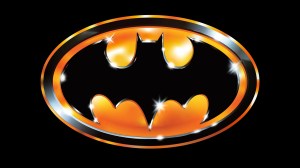This week, Paramount and Miramax will release Confess, Fletch in a limited theatrical run, along with a premium video on demand release. The film, based on the novel of the same name by mystery writer Gregory McDonald, will feature Jon Hamm in the role made famous by Saturday Night Live alum Chevy Chase in a beloved 1985 film (Fletch) and its less-than-beloved 1989 sequel (Fletch Lives). And while Confess, Fletch is the second novel in the Fletch series (there are nine books featuring Fletch as the lead character, and then two more featuring his son, with Fletch as a supporting player), fans are going to wonder whether the new movie is set in the same world as the original Fletch.
Videos by ComicBook.com
The short answer: yes, and no. Sorry. First, a breakdown of the books, and then we’ll dig into how the movies play it.
In McDonald’s novel Fletch, Irwin M. Fletcher is an investigative journalist, a deadbeat ex-husband who owes thousands in alimony to two different women, and a jaded veteran who refuses to pick up the Bronze Star he earned in Vietnam. While investigating a drug story, he goes undercover as a drifter, and finds himself singled out by a wealthy man who claims he is dying of cancer, and wants to play “Fletch” to murder him. The story ends with Fletch filing stories on two separate-but-interrelated scandals, then jumping on a flight out of the country with a briefcase full of money.
In Confess, Fletch, which was published two years later, Fletch is out of the journalism game and living on his ill-gotten fortune. He’s engaged to a beautiful young woman whose father is an Italian count who has fallen on hard times. His art collection, which represents the bulk of his assets, has been stolen, and so when the Count is kidnapped, Fletch has to return to the U.S. to recover the paintings. Upon his arrival, though, he discovers a corpse in the house he is renting, and becomes the prime suspect in a young woman’s murder.
In the movie version of Fletch, the basic plot is much the same, except that he falls in love with the would-be widow of Alan Stanwyk, the supposed cancer patient who wants Fletch to end his suffering. When it turns out Alan is a drug dealer who wants to murder Fletch and fake his own death, Fletch flees the country with Mrs. Stanwyk at his side. He’s still got that briefcase full of money, at least presumably, but he also has the rightful owner of that money with him. It’s no wonder Fletch Lives was an original story, rather than trying to reckon with how that change impacted Fletch’s trajectory going forward.
So. Confess, Fletch.
The movie strikes a balance between the more acerbic, mystery-driven stories that McDonald liked to tell, and the joke-driven, more snarky and slapstick approach of the Chase movies. The basic plot remains the same, with Fletch engaged to the daughter of an Italian aristocrat, whose art is stolen and who is then kidnapped.
In the movie, much less emphasis is placed on the art being all that the family has to their name. It seems they are living comfortably, if not in luxury, even without it, and it’s only the kidnapping that puts real pressure on them. Since the kidnappers are specifically asking for one of Menti’s (the count’s) paintings, Fletch’s fortune doesn’t come into play. It wouldn’t help, even if he had it.
At one point, while being grilled by the police, Fletch does say that he has money of his own stowed away, independent from that of his wealthy girlfriend and her aristocratic family. It is not elaborated on, but it’s likely that writers Zev Borow and Greg Mottola intended to imply that Fletch had lived through some version of the events of Fletch, and that he was able to retire from being a journalist and live a life of leisure using that cash.
It is not directly stated, though, and there was an opportunity to do so. When the police dig into Fletch’s background, they learn about his ex-wives, his Bronze Star, a failure to appear citation that is almost certainly a reference to the ending of the Fletch novel, and that all of the charges against him have been dismissed…but they don’t mention, as the book did, that he had cracked open a massive case involving corrupt millionaires and cops.
Of course, in the movie version of Confess, Fletch, Hamm’s version of Fletch repeatedly drives the point home that he is an investigative reporter “of some repute,” so it may not be necessary to point out that they’re aware of his biggest success.
The biggest argument against Confess, Fletch being considered a direct sequel to Fletch (aside from the fact that they come from different studios and happened decades apart) is the existence of his relationship with Mrs. Stanwyk. Most of the edges were sanded off of Fletch before heading to the big screen, and that included a decision to transform him from somebody who enjoys casual sex at any opportunity, into someone who falls head-over-heels for a subject of his investigation. That version of Fletch doesn’t seem like a guy who would skip out on alimony payments, or a guy who would take Alan Stanwyk’s bag of money while his wife was…y’know…right there. So while some version of that story likely happened before the events of Confess, Fletch, we’re going to say that this is only a sequel if you really, really want it to be.








